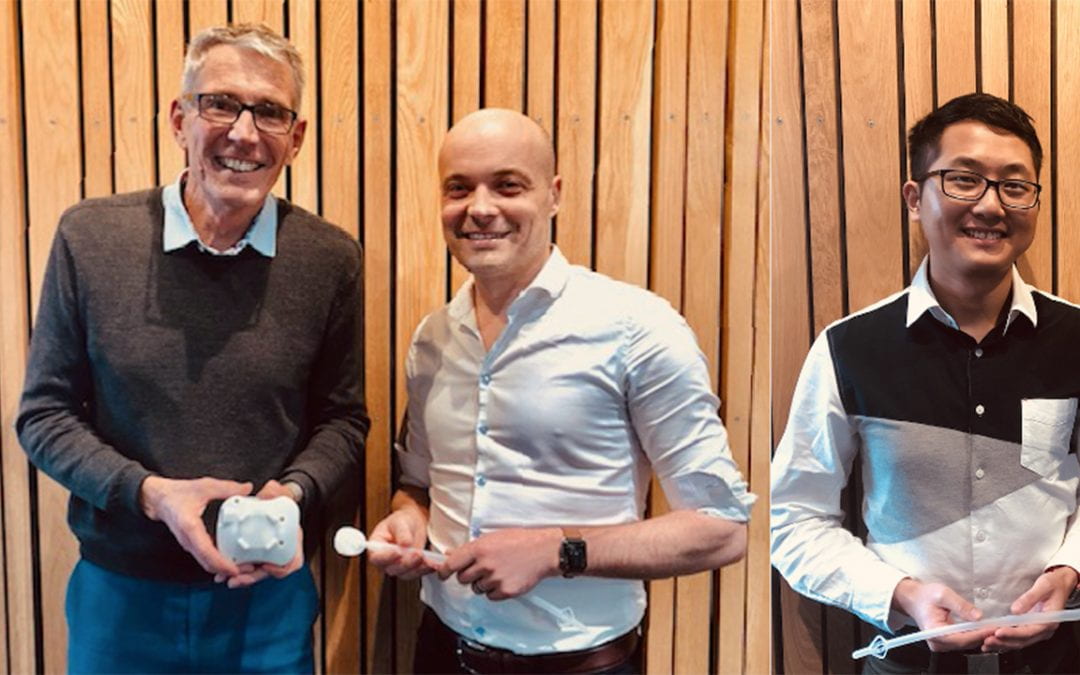Ian Bissett and his team have been awarded an HRC Project Grant that will be exploring the ability of a newly developed medical device to improve the outcomes of patients with rectal cancer.
Every year in New Zealand around 900 people are diagnosed with rectal cancer. The majority of these undergo surgery that leaves them with a temporary ileostomy (bowel bag) that is formed to allow the bowel that has been joined downstream of the ileostomy to be fully healed before that portion of the bowel is used. Unfortunately, many of these patients are left with the temporary ileostomy for many months and during this time there is a risk of dehydration related to fluid losses and subsequent kidney injury. The portion of the bowel that is not being used also loses some of its normal function. When the ileostomy is finally closed it takes a considerable time for the previously inactive bowel to recover, resulting in prolonged hospital admission and distressing symptoms.
This new pump sits within the ileostomy bag and pumps the intestinal fluid into the downstream portion of the bowel helping retain its function and stimulating normal bowel motions. The HRC Grant that has been awarded will fund a randomised controlled trial that compares patients who have our newly developed pump with those who do not. We anticipate that those patients with the pump, who are able to keep the downstream portion of the bowel active, will have fewer admissions for dehydration and kidney injury and will recover more quickly after the ileostomy is closed.
The instructions for the use of the pump has been translated into a number of languages, and as a world-first for a medical device, it has also be translated into Te Reo.
Our PhD student, Chen Liu, who will be funded by this grant, has already made significant progress. He has completed a feasibility study and has ethical approval and agreement from the hospital sites to begin the randomised controlled trial. This new device has the potential to improve the quality of life of hundreds of patients each year.


Recent Comments